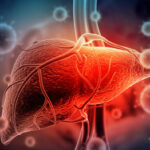Gastric ulcers are a type of peptic ulcer disease that results from gastric acid erosion of the stomach lining. They form open sores that may bleed and cause abdominal discomfort. Recognizing the causes, symptoms, and treatment options from a Gastroenterology doctor in Dwarka for gastric ulcers will help you treat them effectively.
What are Gastric Ulcers?
A stomach ulcer, medically known as a gastric ulcer, is an open sore that forms in the lining of the stomach or the first part of the small intestine, known as the duodenum. Both stomach and duodenal ulcers are types of peptic ulcers.
They are named after pepsin, a digestive enzyme found in the stomach. Peptic ulcers develop due to the erosion of the protective mucous lining, which allows gastric acids and digestive enzymes to corrode the walls of the stomach and duodenum, leading to the formation of open sores.
Without proper treatment, these ulcers can cause complications such as internal bleeding. In severe cases, it can cause perforation of the stomach or duodenal wall.
Causes of Gastric Ulcers
Gastric ulcers can be caused by various sources. Here are a few key reasons.
- Helicobacter pylori bacteria (H. pylori): This bacteria disrupts the protective mucus layer in the stomach and small intestine. It leaves the lining vulnerable to acid damage. The bacteria spread through contaminated food, water, utensils, and saliva contact.
- Medications: Nonsteroidal anti-inflammatory drugs (NSAIDs), like aspirin and ibuprofen, are significant risk factors for peptic ulcers. These drugs can irritate and harm the stomach and intestinal lining, making NSAID users more susceptible to ulcer development. Acetaminophen (Tylenol) is often recommended as an alternative for those unable to tolerate NSAIDs due to ulcer-related conditions.
- Other Conditions: Zollinger-Ellison syndrome, though rare, prompts the growth of tumours, both cancerous and noncancerous, which release excessive stomach acid. This surplus acid production, triggered by hormonal imbalances, can lead to the formation of gastric and duodenal ulcers. While these tumours typically arise in the pancreas and duodenum, they can manifest in various bodily locations, exacerbating ulcer risks.
Symptoms
Gastric ulcers often manifest through distinct symptoms. These symptoms signal potential underlying issues that require attention. Recognizing these signs helps in early diagnosis and prompt treatment. Common symptoms of gastric ulcers include:
- Burning pain or discomfort between the belly button and breastbone.
- Exacerbation of pain on an empty stomach, especially between meals or at night.
- Temporary relief with antacids, followed by recurrence of pain.
- The feeling of fullness with little food consumption.
- Loss of appetite due to pain.
- Occasional heartburn and acid reflux.
- Chest pain and fatigue.
- The sensation of bloating and frequent burping.
- Unexplained weight loss or lack of appetite.
- Nausea and occasional vomiting, potentially with blood or coffee-ground appearance.
- The presence of bloody or dark stools indicates internal bleeding.
- Symptoms may alleviate temporarily after eating, drinking, or taking antacids.
It’s worth noting that small ulcers may not always exhibit noticeable symptoms. However, if you experience any of the above-mentioned signs, consulting with a healthcare professional is advisable.
Diagnoses
When suspecting a peptic ulcer, your doctor will initiate a thorough examination and conduct various tests:
- Physical Examination: Your doctor will palpate your abdomen and inquire about symptoms like tenderness, pain, or bloating. Auscultation with a stethoscope may also be performed to assess stomach sounds.
- Testing for H. pylori: To detect the presence of H. pylori bacteria, samples of blood, stool, or breath may be collected.
- Endoscopy: In cases where symptoms are severe or complications are suspected, an endoscopic examination may be recommended. This involves the insertion of a long, flexible tube into your throat to visualise the stomach lining directly. Biopsies may be taken for further analysis.
- Barium X-ray: Drinking a barium solution before undergoing X-rays enables better visualisation of the stomach and any abnormalities, such as ulcers, due to the contrast provided by the liquid.
Treatment
When faced with a peptic ulcer diagnosis, your doctor will devise a treatment plan tailored to its underlying cause. Here are the various treatment options commonly recommended:
- Antibiotic Therapy: Combining antibiotics to eradicate H. pylori bacteria is a standard approach. This regimen may involve medications like Aciphex or Nexium, coupled with antibiotics, administered over several weeks.
- Avoidance of Painkillers: If ulcers stem from over-the-counter painkillers, discontinuing their use is imperative.
- Cytoprotective Agents: Your physician may prescribe drugs that coat ulcers, shielding them from stomach acid.
- Antacids and Acid-Reducing Medications: These medications work to neutralise stomach acid or decrease its production. Histamine receptor blockers (H2 blockers) and proton pump inhibitors (PPIs) fall into this category.
- Probiotics and Bismuth Supplements: Probiotics can hinder H. pylori growth, while bismuth supplements also impede bacterial proliferation.
In addition to medication, lifestyle adjustments play a pivotal role in ulcer management. These may involve:
- Quitting smoking can aid in ulcer healing.
- Limiting alcohol and caffeine intake can alleviate symptoms.
- Avoiding foods that exacerbate symptoms is crucial for managing ulcers.
In cases where conservative measures fail to yield improvement, surgical intervention may be necessary. Surgical options include:
- Gastrectomy: Partial removal of the stomach.
- Vagotomy: Cutting the vagus nerve to reduce acid secretion.
- Antrectomy: Removal of the lower stomach portion responsible for stimulating digestive juice production.
- Pyloroplasty: Enlargement of the stomach’s opening to expedite food passage.
- Laparoscopic Surgery: Minimally invasive procedures utilising cameras and small incisions for diagnostic and therapeutic purposes.
Summing Up
Gastric ulcers are prevalent but treatable conditions that respond well to early intervention. Seeking medical advice upon experiencing symptoms like heartburn, acid reflux, or persistent abdominal pain is crucial. Treatment includes medications and lifestyle modifications. Prompt action and committing to lifestyle changes can help ulcers heal faster. If you suspect an ulcer, consult the best Gastroenterology doctor in Dwarka immediately for prompt care.













